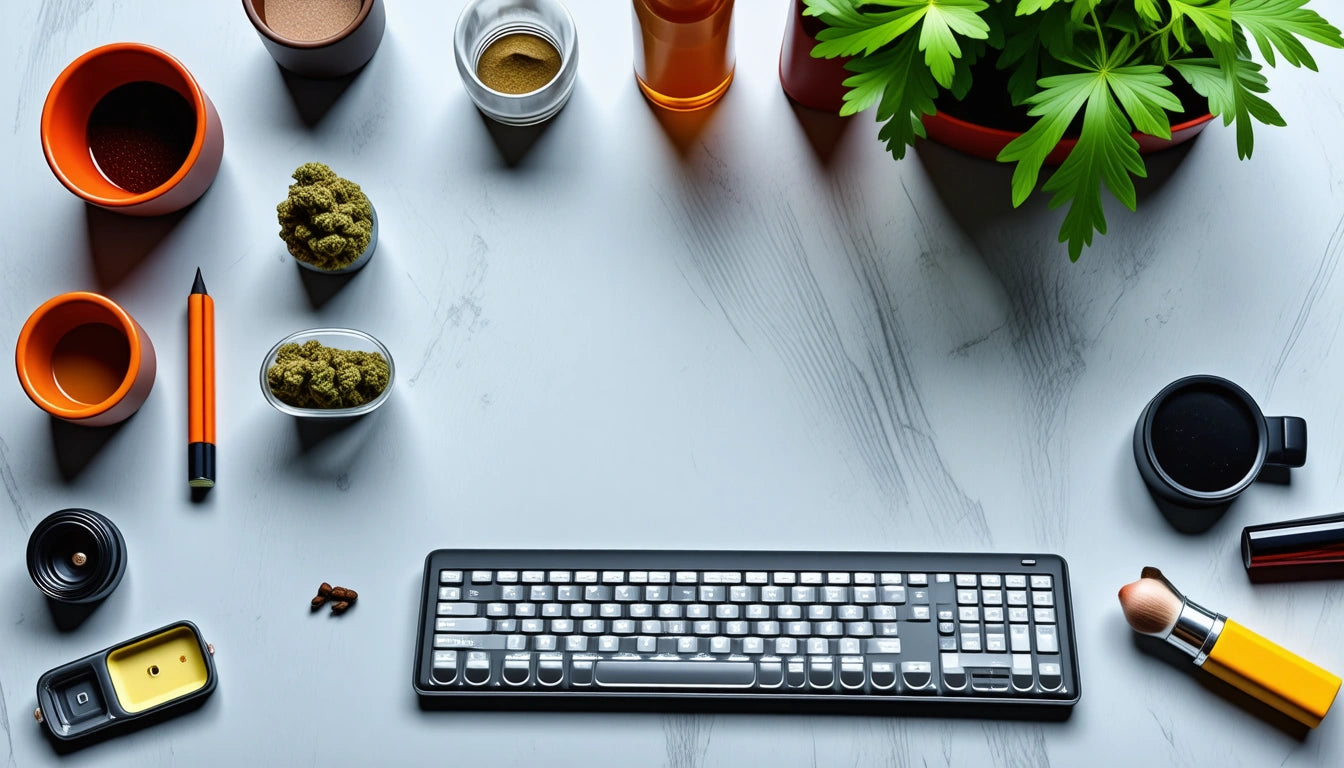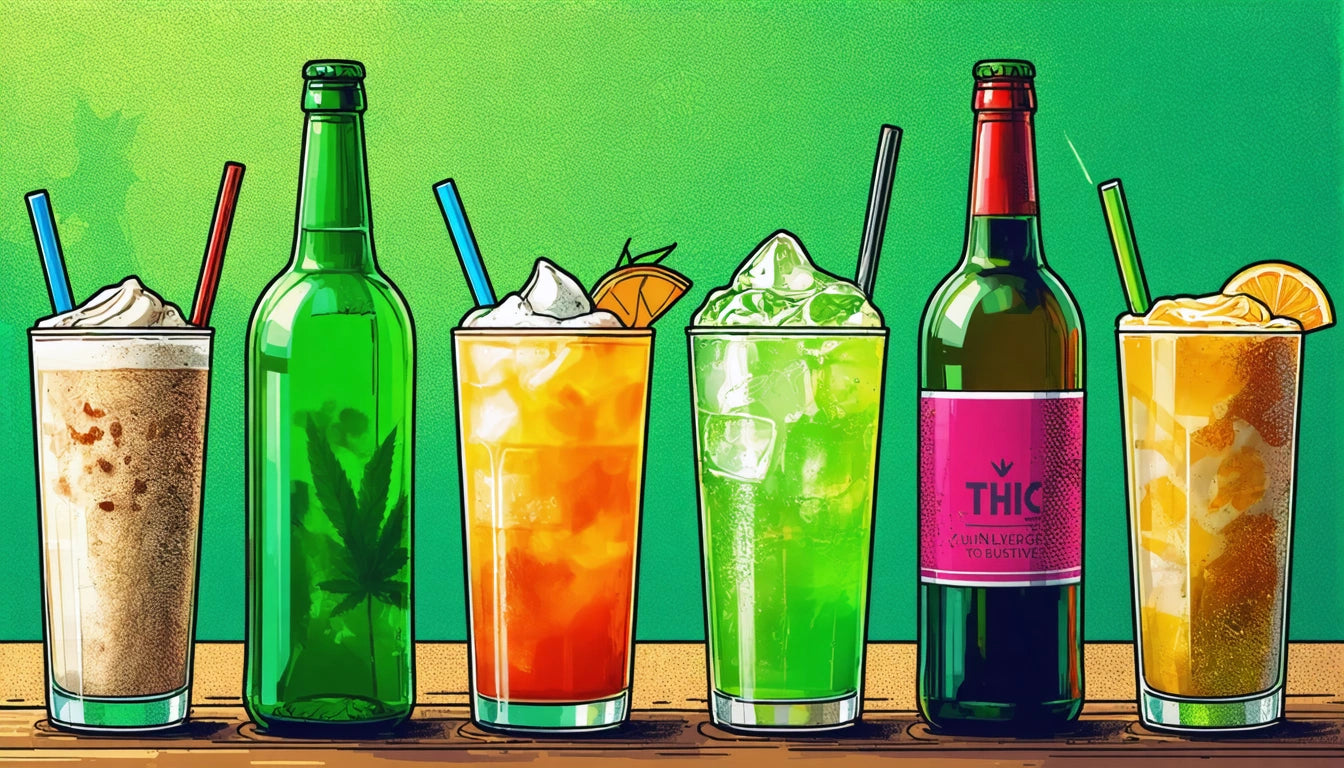Table of Contents
Understanding Edibles: Potency, Shelf Life, and Safety Concerns
Cannabis edibles have become increasingly popular as a smoke-free alternative for consuming THC and CBD. However, questions about their longevity, potency retention, and safety continue to circulate among both new and experienced users. This comprehensive guide addresses common concerns about whether edibles lose potency over time, if they can go bad, and what safety precautions consumers should consider.
Potency Degradation in Cannabis Edibles
The question "do edibles lose potency over time" is common among cannabis consumers. The short answer is yes, edibles do gradually lose potency, but the rate depends on several factors.
Factors Affecting Potency Loss
THC and other cannabinoids naturally degrade over time due to exposure to:
- Oxygen (oxidation)
- Light (photodegradation)
- Heat
- Humidity
When edibles are left open or improperly stored, the degradation process accelerates. Research shows that THC can convert to CBN (a less psychoactive cannabinoid) when exposed to oxygen, resulting in different effects than originally intended.
Timeline of Potency Degradation
Freshly made edibles maintain optimal potency for about 3-6 months when properly stored. After opening, the timeline shortens considerably:
- Unopened, properly stored: 3-6 months of optimal potency
- After opening: Noticeable degradation within 1-2 weeks
- Left open: Significant potency loss within days
For precise dosing, many manufacturers and consumers rely on accurate digital measurement tools to ensure consistent potency in homemade edibles, which becomes even more important as products age and potency becomes less predictable.
Shelf Life and Storage Considerations
The question "can edibles go bad" addresses both potency and food safety concerns. Like any food product, edibles can indeed spoil.
Signs of Spoiled Edibles
Watch for these indicators that edibles have gone bad:
- Mold or discoloration
- Off smells
- Unusual texture
- Rancid taste
The base ingredients often determine shelf stability. Chocolate and hard candies typically last longer than baked goods or products containing dairy or fresh ingredients.
Optimal Storage Methods
To maximize shelf life and maintain potency:
- Store in airtight containers
- Keep in cool, dark places
- Refrigerate perishable edibles
- Consider freezing for long-term storage
Studies on edible safety indicate that while expired edibles might not cause serious harm if the food base hasn't spoiled, their effects may be unpredictable due to cannabinoid degradation.
Safety Concerns and Adverse Reactions
Edibles pose unique safety challenges compared to other consumption methods due to their delayed onset and prolonged effects.
Managing Negative Reactions
If experiencing a bad reaction to edibles, these steps can help:
- Stay hydrated
- Move to a calm, comfortable environment
- Use CBD to potentially counteract THC effects
- Practice deep breathing techniques
- Remember effects are temporary
In severe cases of adverse reactions, medical attention may be necessary, especially if symptoms include extreme anxiety, paranoia, or physical discomfort.
Dosage Considerations
Many negative experiences stem from improper dosing. Research indicates that beginning with 2-5mg THC is advisable for new users, with experienced consumers still exercising caution above 10mg.
Consumption Methods and Absorption
How edibles are consumed significantly impacts their effects and onset time.
Chewing and Absorption
What happens if you don't chew an edible properly? Insufficient chewing can affect how quickly cannabinoids are absorbed. Some products, like hard candies or lozenges, are designed for sublingual absorption, bypassing first-pass metabolism for faster effects.
Timing of Effects
The question "do edibles kick in after eating" relates to digestive processes. Typically, effects begin 30-90 minutes after consumption but can be influenced by:
- Metabolism
- Food in the stomach
- Product type
- Individual body chemistry
A full meal before or after consuming edibles can delay onset and potentially reduce peak effects by changing absorption rates.
Medical Considerations for Edible Users
Certain medical conditions warrant special attention when using edibles.
Dental Procedures and Edibles
Can edibles cause dry socket after dental procedures? Smoking cannabis creates suction that can dislodge blood clots, but properly consumed edibles don't pose the same risk. However, chewing hard edibles after extraction could potentially disrupt healing sites.
Digestive and Reproductive Health
Questions like "can edibles cause yeast infection" reflect concerns about systemic effects. While no direct causation has been established, some users report changes in vaginal health with heavy cannabis use. Research suggests this may relate to immune system modulation rather than direct effects.
Best Practices for Edible Management and Consumption
Maximizing the benefits of edibles while minimizing risks requires attention to detail in both storage and consumption habits.
Inventory Management
To address concerns about whether old edibles lose their potency:
- Label products with purchase and opening dates
- Implement a first-in, first-out usage system
- Regularly check stored products for quality
- Consider smaller purchases for fresher inventory
For commercial producers and retailers, proper inventory management not only ensures customer satisfaction but also compliance with increasingly strict regulations around cannabis product freshness and potency.
Responsible Consumption Guidelines
Understanding what happens when you eat an edible helps set appropriate expectations:
- Start with low doses (5mg THC or less for beginners)
- Wait at least 2 hours before consuming more
- Keep CBD products on hand to moderate THC effects if needed
- Maintain detailed notes about personal reactions to different products and doses
By following these guidelines, consumers can enjoy the benefits of edibles while minimizing the risk of adverse experiences or wasted product due to potency degradation.











Leave a comment
All comments are moderated before being published.
This site is protected by hCaptcha and the hCaptcha Privacy Policy and Terms of Service apply.